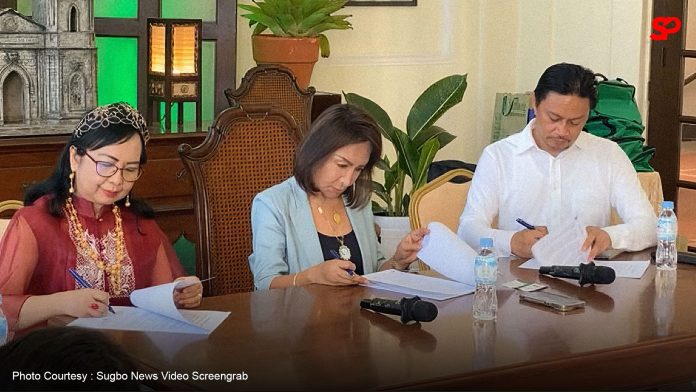By Xander Ledesma
An innovative move to enhance health care options, Cebu Province has established a partnership with experts from Fujian University of Traditional Chinese Medicine (FUTCM). Announced on November 3, 2024, the collaboration seeks to incorporate Traditional Chinese Medicine (TCM) into Cebu’s health care system, a vision strongly supported by Governor Gwendolyn Garcia, who advocates for broader health care choices for the community.
The partnership introduces a holistic approach to wellness, combining traditional TCM methods with modern medicine to expand Cebu’s health care framework. Governor Garcia emphasized the importance of offering a range of health options to residents, explaining, “This partnership provides an avenue for TCM to complement conventional health care, offering a more comprehensive approach to well-being.” TCM practices, which include herbal remedies, acupuncture, dietary guidance, and exercises like Tai Chi, focus on achieving balance in the body’s energy, or “qi,” addressing health issues’ root causes.
Traditional Chinese Medicine has seen growing interest in the Philippines over recent decades, reflecting a broader trend toward natural and holistic therapies. As wellness tourism rises and more people seek alternatives to conventional medicine, Cebu’s diverse cultural landscape makes it well-positioned to integrate TCM. The partnership with Fujian University, a renowned institution in China, allows for the sharing of expertise and training. This collaboration also aligns with the World Health Organization’s recognition of the potential benefits of blending traditional medicine into conventional health care systems, a model embraced by countries such as Australia, Canada, and the United States.
Beyond the health care improvements, the agreement with FUTCM may positively impact Cebu’s economy. By integrating TCM, Cebu could strengthen its appeal as a wellness tourism destination, drawing visitors interested in alternative healing practices. With the right infrastructure and promotion, Cebu could attract both local and international visitors seeking wellness retreats and specialized treatments, potentially creating job opportunities for local health workers trained in TCM.
As Cebu moves toward a more integrative health care model, local leaders stress the need to honor cultural traditions and collaborate closely with local communities. By blending traditional and modern practices, Cebu is positioned to offer a diverse and holistic approach to wellness. The partnership with Fujian University marks a meaningful step forward in Cebu’s health care evolution, providing residents with new options for their well-being and strengthening the province’s reputation as a center for health and wellness in the Philippines

